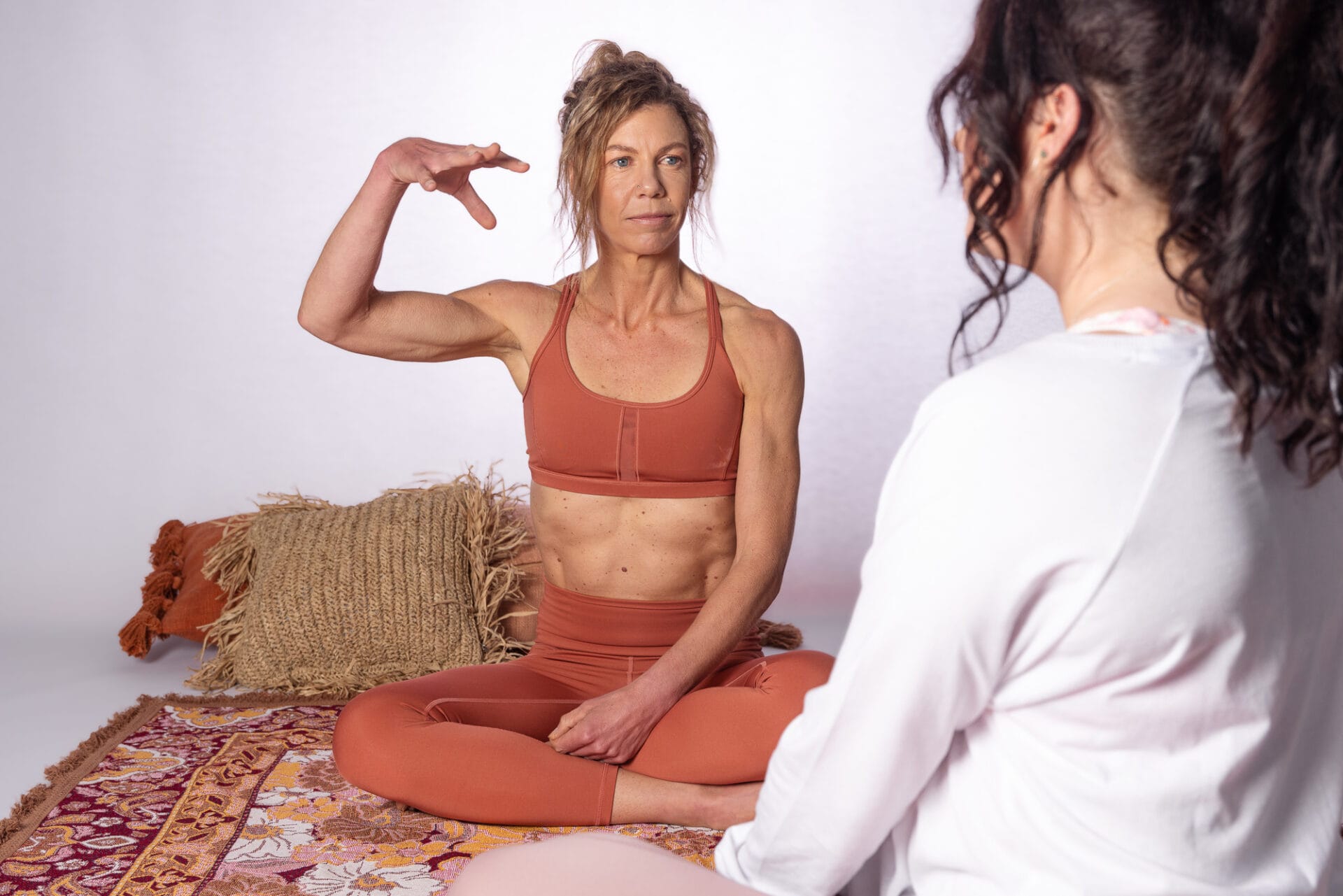Strategies to help you sleep
Sleep is an essential part of our overall well-being, yet many of us struggle to get the quality rest we need. If you find yourself tossing and turning throughout the night or waking up feeling groggy and unrested, it may be time to prioritise your sleep health.
In this post, we’ll explore a comprehensive guide to better sleep, offering valuable tips and insights to help you achieve a restful night’s sleep. Whether you’re a new parent, a busy professional, or simply looking for ways to improve your sleep routine, The Healthy Mummy has some sleep improvement strategies that are sure to leave you feeling rejuvenated and ready to take on the day.
You may have read or heard some previous material on sleep, and we cover many aspects here.
With guidance from the lovely expert Nicole Topp, we are going to have a deep dive into some strategies to help you change the way you feel about your body and your mind through sleep.
With this knowledge you can, hopefully, make some action plans, follow them and see and feel a shift.
The reasons why we might struggle to sleep well

We all know that sleep deprivation is like a form of torture, in how debilitating it is and how if can effect our ability to function. This is really illustrated quite well when your baby sleeps through the night for the first time or at least for a good chunk.
When that happens, when you do you wake up, not only in a little bit of a panic, because you think something must have happened, but you actually feel rested and that little bit brighter.
Nicole describes it as a ‘Mary Poppins kind of day’, where nothing is an inconvenience, and you can sing your way through everything! You feel human again and everything reflects this, you notice it in your appearance and your patience levels.
Sleep in a major reset for the body and when we don’t get enough our internal dialogue is not so good and this ultimately affects your mental health. We can definitely change the way that we feel about our body and mind. So, if we can nail a good nights’ sleep, we can nail most things. There are so many causes for sleep deprivation.
There is shift work, which is what parenting is all about anyway, as we’re all on 24/7 schedules. We don’t get that opportunity for a proper break and that’s going to impact our sleep phase.
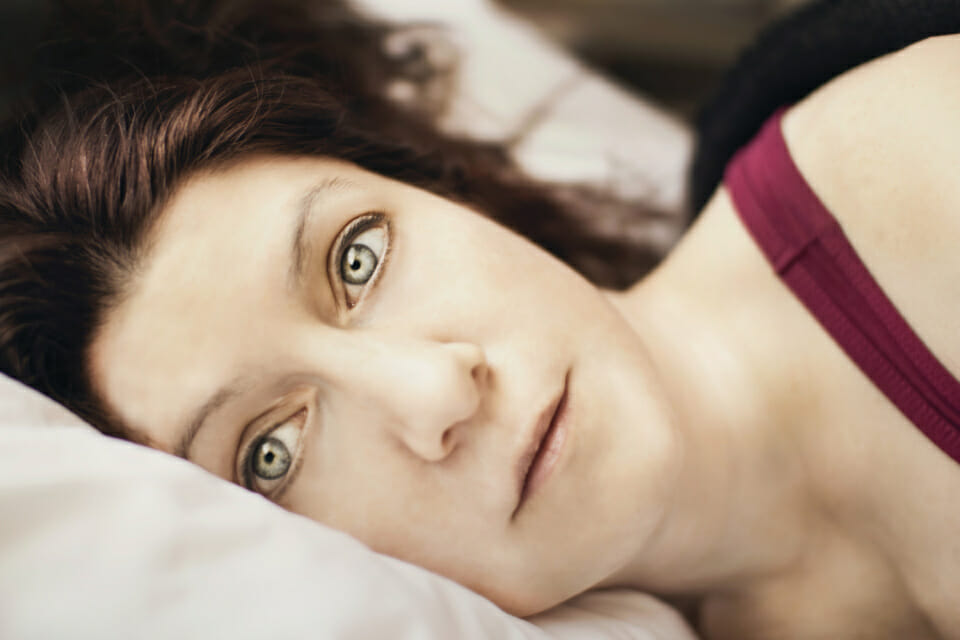
Reasons why you might be struggling to sleep
We have idiopathic issues, which can be lifelong problems. Meaning that , if you’ve never been a very good sleeper, this will always be an issue for you. There is an emotional aspect where you may be processing what has happened happened during the day and how you feel about it, but at the wrong time – or only time you can.
There are psychological aspects when looking at attention and anxiety, as well as the physiological aspect thrown in there too. For example, if your muscles are really tight, it is really hard to get comfortable. You’re constantly shifting to find the right position.
Natural health practitioners, like Nicole, look at food allergies. Environmental issues such as noise or your surroundings, temperature, or uncomfortable bedding can affect your sleep. Your body might be in pain. There are always biochemical, disruption imbalance possibilities, which are always good fun for practitioners to deal with.
But, Nicole’s favourite “Is definitely the 2:00 AM transient aspect where we can wake up at 2:00 AM and literally have no idea why we’re awake. Most people can relate to this in some way, shape or form.
“I know I’ve woken up and wondered why I’m thinking about something that happened 15 years ago. It just sort of ‘pops in’ and ‘pops out’ and then I think, “Well, I’m awake. What am I going to do now?“
Changes to make if you want a better nights’ sleep
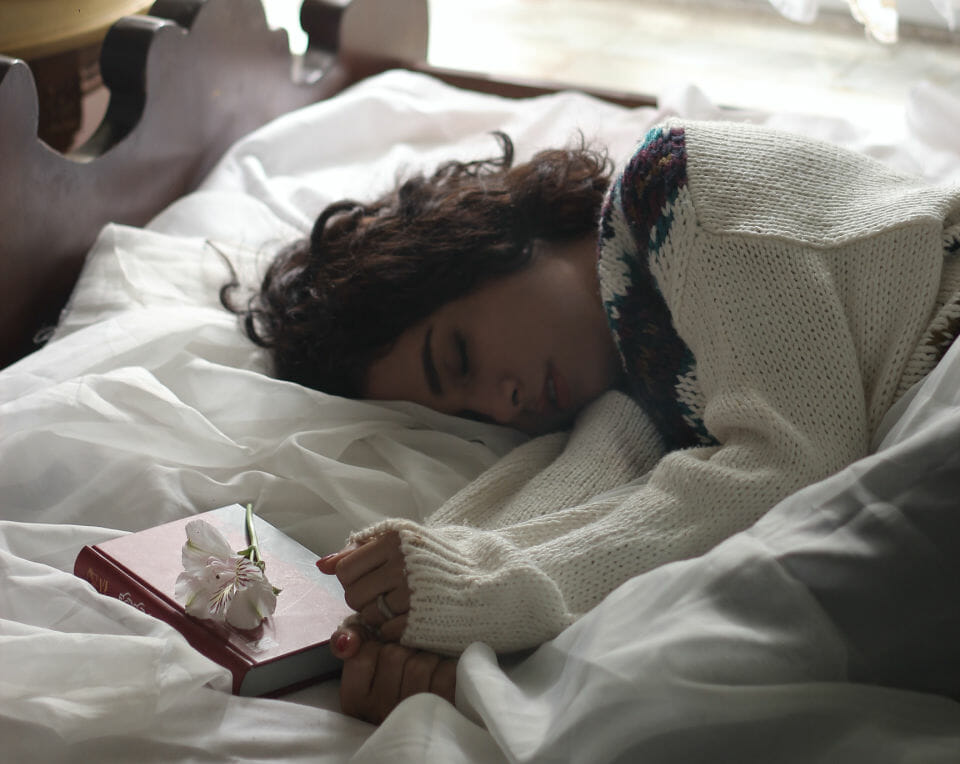
And then there is alcohol dependence. The most common thing that Nicole sees is that most people have a drink at night and have no trouble falling asleep, but the quality of the sleep is really impacted. There are so many things to consider and be addressed, but you need to identify the cause of the problem or have some awareness as a starting point.
It is also about recognizing that proper insomnia is defined as, difficulty falling asleep, staying asleep or not having a restorative sleep. It usually lasts for over two weeks, and it happens at least three or more times a week as well. So, it is important to realise that proper insomnia is a little bit different to simple sheer exhaustion.
Let’s have a look at the impact of lack of sleep and learn to recognise the symptoms, then it will be easier to make the changes required. Your muscles are affected so, your response times get slow and your reflexes are decreased.
Your accuracy is off, and you can even get a tremor after a period of not sleeping. You may notice the body aches that little bit more, the immune system depleted, and your heart rate variability increase when sleep deprived. There is a also higher risk of obesity when not sleeping well because the bodys’ metabolism is affected. With children, you may have to contend with growth suppression.
All of these tips can be useful for our children as well if they’re having trouble sleeping, it’s not just for the adults. Sleep promotes growth. Lack of sleep will lead to cognitive impairment. It is hard for both adults and children to know when they are actually tired. Memory can lapse, our creativity dips.
The role melatonin plays with sleep
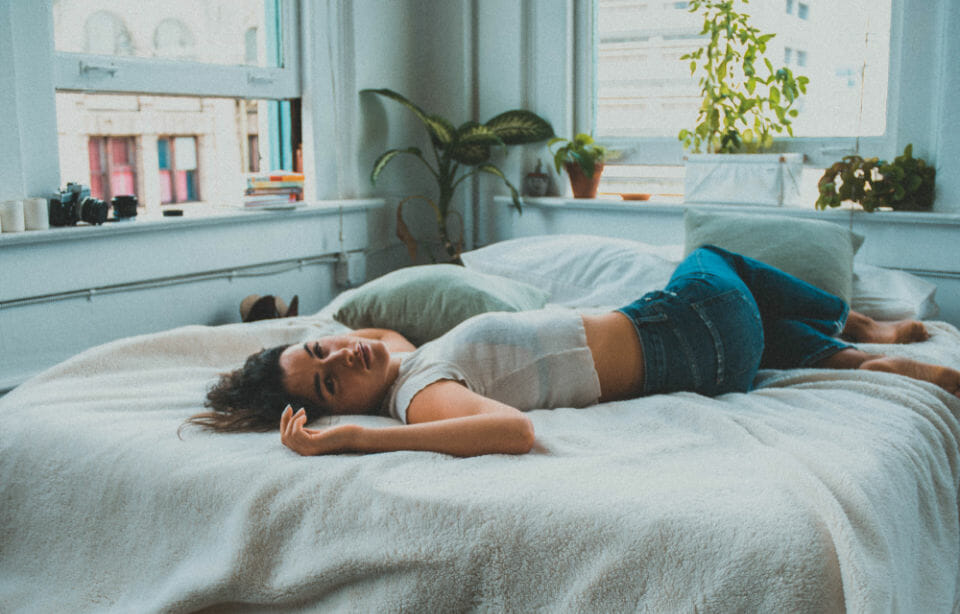
Creativity is so crucial for peace and happiness, and it takes many shapes and forms. All of these things create a huge difference within the body. It is really important to make sure that you prioritise sleep and ensure that you are getting enough sleep regularly.
A big thing to talk about here, is melatonin and to understand its importance and understand the role that it has within the body. Then we can understand what we have to do every day to make sure that we’ve got what we need to be able to regulate that cycle as best we possibly can.
It’s not to say we need to take it, but we need to look at the function and what we can do during the day to be able to support it. Ultimately, melatonin is responsible for circadian rhythm.
Helping create a sleep rhythm
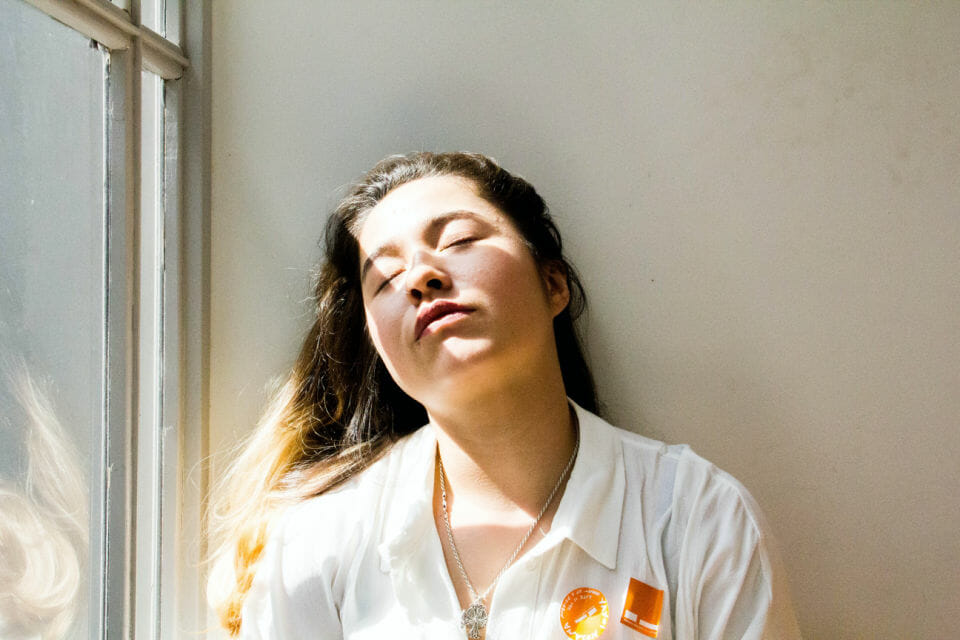
“For kids too, we need to ensure we are regulating that rhythm to make sure that it is doing what it should be doing all by itself. The body has this innate wisdom. It heals itself…it just needs some support. It knows what to do,” says Nicole.
“But when we intervene in so many different ways…it can create a bit of a problem. So just regulating that rhythm will actually also mediate our sleep and dreaming.”
Melatonin is also an anti-inflammatory. Nicole is someone who really focuses on mental health and says, “Anything anti-inflammatory within the body that we can really harness is super important, because as far as inflammation in and around the brain and gut are concerned, it’s all closely linked and that is like a massive focus.
“It is also immune modulating, it has a free radical scavenging effect. So is a really important part of our body. It is lower during the day and higher at night. It’s lower before light onset in the morning which stimulates waking up.”
How the body regulates itself to help you sleep

However if you live in a place with no light response, and everything is dark, it’s harder to regulate. We regulate our sleep by working with that daylight cycle. It’s not such an issue for children but, as adults we need to make sure we see enough daylight and spend time outdoors.
We all feel better for having spent time outside so set boundaries around spending too much time cooped up indoors. Winter is a good example of what suppresses melatonin as we all spend a lot more time indoors.
The reason why melatonin is such a focal point for Nicole, is about the exposure to light through our technology. Especially with kids, as it throws everything out.
Blue light (from devices like phones, tablets and TV) especially in the lead up to bedtime, as tempting and easy as it is, is not the best idea for any of us, not just the kids. Scrolling takes on a whole new meaning when we then can’t get to sleep at night because we’re over stimulated.
As we age, our melatonin decreases. Nicotine, caffeine, alcohol are all suppresses of melatonin. So stay aware of your alcohol and caffeine intake before bed.

Is your lifestyle affecting your sleep?
We have looked at stress in other articles, but stress has a big impact on melatonin levels. When it comes down to it, our lifestyle and environment are really important in making sure that we get the best sleep possible.
Some things to take away from this conversation with Nicole – watch those stimulants after lunch – caffeine, sugar, MSG. This isn’t talked about enough and we need to read the labels in those tasty snack foods.
That packet of crisps before you go to bed or while you’re watching telly, could have you bouncing off the walls instead of nice and settled before you go to bed. Stick to clean simple foods that have had as little interference or processing as possible. Grow things in the garden. Kids love eating from the garden and the fresher the better.
Close down as many tabs as possible before bed. Leave tomorrow till tomorrow. Get the journal or list out and park those thoughts for another time!
And the final one is just permission to sleep. Put the phone in the other room or better still turn it off, and have that guilt free, much needed rest.
Find something that works for you.
Sleep is an essential part of our overall well-being, yet many of us struggle to get the quality rest we need. If you find yourself tossing and turning throughout the night or waking up feeling groggy and unrested, it may be time to prioritise your sleep health.
Whether you’re a new parent, a busy professional, or simply looking for ways to improve your sleep routine, The Healthy Mummy has curated a collection of sleep improvement strategies offering valuable tips for better sleep and insights to help you achieve a restful night’s sleep that are sure to leave you feeling rejuvenated and ready to take on the day.
Get access to sleep tips, calming music, meditations, and recipes in The Healthy Mummy 3 day sleep program.
Our comprehensive 3 day Sleep program, will provide you with:
- Meal plans for simple nutritional swaps to improve sleep quality, including recipes for 3 main meals & 3 healthy snacks per day
- Guided breath-work programs targeting relaxation & de-stressing priming you for refreshing sleep
- Guided Yoga, Pilates & Meditations to establish a connection between physical and mental relaxation for improved sleep
- Podcasts from sleep-expert and Naturopath on how to get a better nights sleep
- Info-blogs from our expert Wellness Team, with easy and realistic strategies for relaxation and a better nights sleep
- Easy to follow 3 day program guides you on when to take each step to make things super simple and effective
- Everything at your finger tips you can easily access the program from your Healthy Mummy account on your smart device

